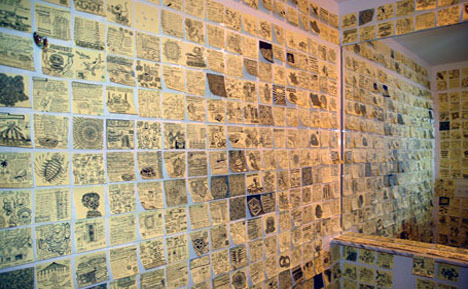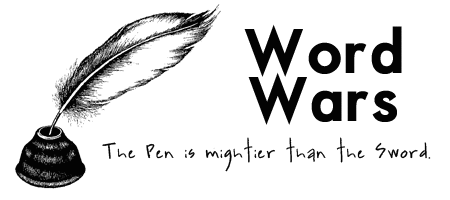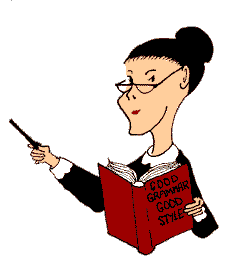Kate Larking's Blog: Anxiety Ink, page 71
February 26, 2014
Depression and the Writer
The following post is written from my own experience and might not apply to all writers or artists. Which is totally fine. But if you identify, let me know.
A lot of the time, writers (and artists) are seen to be mentally…unstable. That is to say, as a breed, we are prone to mental illness, or afflicted by disorders, immersed in episodes of mental instability. Depression and the like.
While I have been fighting for a long time, I have started to come to terms with what it means to be an artist and what it means to struggle when dreams are more enticing and alluring to immerse yourself in than reality.
We dream of living an ideal life, losing pieces of ourselves into every character we imagine.
The fighter who can move with ease and carry herself like she is weightless, flexible. It is so much easier to imagine that character than it is to live with discipline of eating cleanly, exercising often, lifting weight. Making time for that when you want to dream and write? Less of a chance.
The mage, able to conjure magic, to invent and make something remarkable. That dream, full of light and colour, is so much easier that the application to science to learn how to elicit certain reactions and make potions.
The healer, able to guide all illnesses through to wellness or know what fates have in store is much simpler to imagine than it is to face a family or individual illness, clouded in uncertainty and complicated medications.

These small dreams hold so much promise, so much potential that our own human potential seems small, insignificant, unachievable. Our own stories seem pale, convoluted, and dim in comparison with those of epic fantasies, urban fantasies, any fantasy. We are so lost in our dreams that our lives seem trivial.
To detangle ourselves from fantasy that we so want, that we want to share and make into something that others are able to experience, is difficult. We become unmotivated, irrelevant, sad, depressed, lost, left stagnant and still. I’m learning more about how to ground myself. My wife is the anchor of my life. She does so much and is so capable, that I am often left in awe of her. She told me today as I lost myself to stillness, “It’s better to do something than nothing.”
So I keep moving, to better myself and my life, while I balance what I create in fantasy with what I create in life.
February 23, 2014
Spinning The Story Thread
*Thanks, Elisa, for Friday’s post! Now here’s that long-winded reply:
When I get that spark, I like to write about it. Not write it, but a stream of conscious blather that tests and explores the spark. I call these free-writes.
For me, a spark isn’t enough to go on. I’ve tried. Usually, it’s just an exercise in futility, and I end up grouchy at the world that I spent all that time with nothing to show for it.
The free-write lets me take that spark and see how far it goes. It allows me to spin out the story. I take any fibers — story elements — I can first grasp and spin them. As I begin to see what works and what doesn’t, I become more selective with my elements. By the end, I don’t have a rug. I don’t even have a skein of yarn. I have a string that I think is the color and texture I want. Or at least something closer than what I started with.
Then I wait.
I have stories sitting, waiting for my attention that are far more ready to come into being. I can work on those while I wait to hit upon how I want to use that new thread I’ve just started. I’ll sketch the pattern as it comes to me, a bit at a time. And maybe the thread I started with won’t do quite what I need it to do. So that has to change before I start.
This is not to say that I don’t hurry stories before they’re ready. But the more hurried they are, the more I have to take out and redo to make it what I imagine it to be. It all eventually comes out the same.
Rarely do I re-read the free-writes. The act of writing it usually cements it in my brain, one way or another. Yet I never throw them out. If I did, I would find I needed it. And the ones I have read are fascinating for the record of how the process works for me.
Everyone has a slightly different process, and sometimes they’re wildly different. I find them all fascinating.
February 20, 2014
Selection Method
I probably have the worst selection method going when it comes to picking projects to work on. See, I wait for inspiration to strike me and then I wait. I’ll have this random moment where I’ll see a certain scene, come up with a certain theme, or feel a character. If I think it’s gold I’ll write it down asap, depending on where I am in said moment. More than once I’ve gotten up in the middle of the night, usually when I’m having sleep trouble, and grabbed a piece of loose leaf to scribble and scribble and scribble on until my hand grows numb because I HAD to get my ideas down. I’ve also done the idea mad dash in the lecture hall, when I’m working out, and so on.
This is not a very common happenstance in my life, though. Usually after the idea has struck I let it sit and fester before I do anything about it. My logic: if the story the initial spark lights is worth it, I’ll remember it. Details will augment, characters will surface, a plot or general beginning and end will synthesize as I wait.
Waiting seems to be a trend in my writing life. Hmm.
I’ll admit it’s an imperfect system. I forget “brilliant” things and it causes a lot of nail biting, but at the end of the day that’s how I like to operate. I find that as soon as I put pencil to paper and make my ideas tangible I see the seemingly insurmountable craters that litter my ideas. As long as they’re intangible I can build bridges that I have a difficult time doing when my ideas enter reality.
I don’t recommend this method. It’s a messy system and I’m sure I’ve lost potentially great stories because other demands in my life were front and centre and story ideas were never able to develop. I will state for the record that I don’t write my blog posts this way. As soon as I come up with an idea I either write it or write a few notes so I can jog my memory. I don’t know what that says about my blogging approach or my writing in general. I’ll leave it free for interpretation.
I’d love to hear how other people operate! Who knows, maybe you’ll be able to reform me.
February 19, 2014
Travel Journaling
When this post goes up, I will be on my honeymoon. So it makes sense that I am blatantly admitting to writing it early.
So I thought I would talk about journaling while abroad.
When I first did this, I decided that the little details about being in new places faded quickly for me. So when I tried to call up a memory of what it was like to be in, say, Rome, I couldn’t quire remember. When I couldn’t remember, even though I had been there, I felt that I couldn’t possibly write about Rome.
My first experience with travel writing, I wrote every detail of the place I visited as it stood out to me on the back of a postcard for that place. For example, I wrote all about Rome, with details like the massive amount of cigarette butts that lined the cobblestone grout of the streets–things that really really stood out as different from my Canadian, paved-city upbringing, and I mailed the postcard back to myself.
It worked well and I tried not to think of the confused looks of the mail carriers and post workers reading my random smatterings of odd facts and people profiling abroad, mailed to a seemingly innocuous Canadian address.

This was nice for research but I found myself stopping, staring at some detail and getting a story idea.
In Venice, I saw a glass rose in a storefront and I became enraptured with the idea of a teen gifting that rose, including thorns. I thought of a fantasy world with female gondoliers and trade secrets.
Cue me running into a store, finding an Italian paper journal with a Florentine paper print (which I loved but was not typical for Venice–I justified it but knowing I was going to Florence after Milan but before Rome in that same trip) and madly writing while my mother and then-girlfriend-now-wife impatiently tapped their toes. Gelato stops, I was writing. Between the primo portion of dinner and the insalata, I scribbled an idea down.

This journal is still in use. It has so far achieves most of its word count while on trains in Europe or buses in the US. There is the occasional train ticket stuffed into the pages. There are title pages for each new place I visit.
While on my honeymoon, I might be writing in it. I might be writing in a new journal, retiring the handmade beauty before the cover becomes too bare of its gold ink. But I will be writing.
February 17, 2014
Update: The Tally System
I have officially taken two non-writing days. I was buried neck-deep in a six-book series and couldn’t put it down until I read them all. This took me a grand total of three days, but I did manage a blog post on the first.
Get me going on a good series, and I’m a bit of an addict. Books are my drug of choice. But that’s beside the point.
I went from writing every day for months to a full stop over two days. Two days immersed in someone else’s words. While amazing, it allowed no outlet for my own.
So the day after this break? The words that hadn’t been written for those days spilled out in a rush. I wrote more in that first day back than perhaps the whole week before.
I’m not advocating writing breaks as some reverse psychology way to boost productivity. It’s only because I otherwise write every day that the day after was so fantastic. Now, I’m more aware of a desire to ration those off-days so they don’t become a habit, yet I don’t feel a need to “make up” for my break. The tally page is no longer blank, and those tallies don’t feel like failures.
That’s what I’d hoped for, and it’s nice to see the reality bear out.
February 13, 2014
The Application of Story in Real Life
I apologize in advance for anyone reading this who is sick to death of hearing about the opening ceremony for the Olympics. I would have written this last Friday but I didn’t see them in time. For those of you who are sick of the Olympics period, I can’t really help you. I feel for you though, I did a happy dance at the end of football season.
But seriously, the opening ceremonies provide an incredible example for the applications of story, fiction even, in real life. And I must commend one of our time’s most fantastic storytellers: Vladimir Putin. Because that “history” of Russia was the biggest lie I’ve ever seen. But man was it told well!
From the Viking settlers, to Peter the Great, to the Revolution, and through the 50s, I’ve never seen such a positive retelling of a bloody and violent history. There was no mention of starvation, burning cities, assassinated royalty, gulags, Stalin, the mafia, bigotry. Those are the big ones I can pull out of my hat without resorting to Google. It was a white washing of epic proportions. I didn’t know any history could be that positively cast.
No, Russia is not the only country on the face of the earth guilty of white washing. There isn’t a country innocent of the act, so I’m not picking on the federation. I adore Russia, really. I’ve had a soft spot for Russian history since I learned of my Russian ancestry. That doesn’t mean I don’t see it for what it is. I love my country too and am very proud to be Canadian, but I’ll be the first one to tell you the country’s faults.
This is getting too political now and that isn’t the point of my post in any way. Ok, it’s not the focus of my post, I can’t help being political when I get the chance. Here’s what I took away from the history lesson and what I’d like you to too: a sprinkling of fact mixed with a smattering of fiction makes for a believable tale. People believed that that was all there was to Russian history. I kid you not. My eyebrows will never come down. I wonder what kind of rocks said people live under. And I wonder what life must be like living in such a positive bubble –should I try it?
The ceremonies illustrated storytelling 101: be SELECTIVE about the details and you’ll get your audience hook, line, and sinker.
I depart with a shameless cheer: Go team Canada!!
February 12, 2014
Edits are a Drowning Hazard
Think positively. The more positivity you put out in the world, the more positivity will come back to you. Karma 101.
Every time I see sentences like the above, I think, “Oh, what a load of –”
But then you hit times in your life where you are really dragging. And the first step to getting out of it is to change your thoughts. (Or make a radical decision and wait for your outlook to catch up. I don’t quite recommend this one but it seems to be the one that I get slapped with a lot).
I made my deadline in November, and then got amazing edits back from Laura Anne Gilman. And I couldn’t look at the edits for over a month. Half of it was holiday and job-quitting related, but the other half was HOLY SHIT, I AM TERRIFIED.

First of all, I finished something. I got from beginning, through muddle/middle, to the end. I wrote a last sentence on it. I read over some of it but I was so fried from writing so fast, I just had to send it. This book has been pieces on a cutting room floor for over ten years. It had many iterations but it was finally in one that kind of made some odd, futuristic sense.
Second, I had to face NaNo draft. NaNo draft that I had let someone else see. Mercifully, I paid her to look at it. I think that was the only way for someone, ANYONE, to make it through looking at that.
Finally, it meant I had to put my big girl panties on and make it into something presentable, potentially purchasable not only by publishers but also readers.
So what does one do, facing that? Put on headphones and get to work.
I’m in the middle. I’ve hit a scene that is tough as nails, a blur of red comments all down the side. Most of the comments are a mix of “???” and “This isn’t saying what you want it to.” And I’m frustrated because my verbs are all wrong, my typos are egregious, I’m drinking way more caffeine than I need, and I actually look forward to the five-ten minute breaks to do chores (Anyone who knows me will know that Kate+Chores=HILARIOUS).
When I look up from the edits, building my resiliency to my first draft woes, I’m tired. One little thing that I see as against me in the world? I feel sucker-punched with depression. My fragile sense of self-security has been used up in my revisions. I’m left personally emotionally fragile, all my strength given into my words of the day.
I’m left with two choices:
Think positive thoughts.
Give up.
Option number 2 has been picked a lot in the past. It’s about time for something new.
February 10, 2014
Attention Spans
I can sometimes multi-task fairly well. Sometimes not so much. I’ve been known to carry on five separate conversations at once without dropping a thing. (Though that was a very, very good day.)
Multi-tasking when it comes to writing? Not so much.
Of course, a lot of it depends on what I’m doing. Rough drafts of novels are the worst. For me, they are the most immersive, the hardest to break from. I’m too high on the potential of the unfinished story, the discovering of world, and characters, and plot.
Editing is easier. It uses more of my analytical brain, less the gut instinct brain. Editing also doesn’t travel so well, and I always carry a notebook or three in my purse, or car, or jacket. I can’t rough draft a novel while editing, but I can write a short story or record a piece for podcast.
The trick is that they all have to be in different modes. I can’t edit two stories at once, for example. If I’m editing a novel and need to edit a short story, the novel has to be put on hold until the shorter piece is done.
Blogging falls into a weirdly neutral territory. I may hate to leave the novel for even a few minutes, but it’s easier to split my attentions. I usually compose posts at the computer, so I’m automatically in a different mindset than whatever I’ve been drafting longhand. But this is non-fiction, and even creative non-fiction doesn’t use quite the same brain-space.
I had a system at my old day job and plenty of time outside of it to switch between projects. But things are different now and I don’t yet have a system that I know will work with this newer schedule. When I move away from the rough drafting, the juggling will begin again as I fit writing around this full-time day job. Mornings and evenings will have to be for editing. Maybe short stories during my smaller work breaks, with lunch a wild card since I come home.
The point of all this multi-tasking is to optimize what little time I have outside of the day job to accomplish as much as possible in my writing life. So many stories to tell, and never enough time!
Do you have a system that works for you? If not, would you like to?
February 6, 2014
An Informal Diatribe on Style vs. Grammar
Alright, I’m stepping on to my English major soapbox…hold on…ok, I’m up.
Note: I’m only standing here to lend myself credibility because what I have to say is pretty un-Englishy.
I must start my mini rant by confessing that I am not a grammarian by any means. Yes, I know and appreciate the necessity of grammar rules, they’re important for communication purposes and standards, after all. Do I love and follow them? No and not always.
On my shelf sits one of the most significant grammar books ever written: Strunk and White’s The Elements of Style. I have to say that I haven’t made it through the whole book, and it’s a really little book. I bought it almost four years ago because it was on my class reading list but I just couldn’t get through it. I’ve started it numerous times and continually find reasons to put it down. I’ve never been very good at learning English rules, I have very little patience for them because I like to get to the damn literature.
Now, before you lose all faith in me, I’m really good at what I do! I promise. How do I do it if I start doodling when things get technical? I seem to have an inherent grasp of the English language; I read a lot, and I grew up with readers. The cadences and structure of English have always just clicked in my brain. When I was in middle school (grades 7-9 where I did my schooling), I was educated in the Late French Immersion program. For anyone who doesn’t quite know what that kind of program is, it means that all of my classes were in French aside from English Language Arts and gym. I didn’t do very well during these years, I struggled in my studies and stopped paying attention to school because it was an extremely difficult time in my life.
Regardless, these years translated into one big thing for me: there were HUGE gaps in my English language education. Hitting high school –and returning to an English school– made that very apparent. I was eons behind my classmates. For instance, I couldn’t have told you in grade 10 what a subordinate-clause is. Actually, I couldn’t have told you that three years ago. Even now the rules are fuzzy and I have to look things up when I need to know something I’m doing is wrong. But for the most part, I just go with my gut, basically.
Of course I make errors, but so do the people that know the rules inside and out! My biggest fault is comma splices, I’m famous for them, especially if I’ve edited while I’m tired. But this leads me into the style portion of my rant: as far as I’m concerned, grammar has a time and a place.
No, I’m not saying any community of writers should toss the rules of language out the window. Just the thought is frightening. What I am saying is that I like flexibility. Formal writing settings, like essays, call for formal writing and strict adherence to the rules of grammar. Informal writing settings, like a novel, should open the opportunity to play with the rules. How you play with the rules informs your style. I LOVE altering the structure of my sentences and playing with my vocabulary to reflect my characters. I couldn’t do this if I didn’t understand the rules though. So yeah, it’s one of those catch 22 things, you have to know the damn rules before you can toss them out the window.
I will always tell writers to embrace and develop a style rather than follow the rules, my inner rebel makes me. Without question, always do what feels right for you as a writer. If you like the rules, follow them. If you don’t like the confines, know ‘em and throw ‘em.
February 5, 2014
Competition
Hi. My name is Kate Larking and I am a competitive author.
I’ve always been competitive. I think it’s how I function on a basic level: compete with everyone and everything. I am always going to be a sore loser. I have a tendency to sulk for hours–days. It’s the most moronic tendency I have.
And it helps me get shit done.

I word war. A lot. People call them all sorts of things: sprints, writing wars, word-offs. But it generally boils down to the same thing: write as much as you can in a set amount of time.
Online, I war with friends over facebook messenger. I also war in a chatroom with a few other authors who I admire. This means that they crush me a lot–a lot. But the beautiful thing about word wars is the victory time. Five to ten minutes of dancing, celebrating your victory, and then you have to get going all over again. Clean slate. Wrote a lot of words last time? Prove your mettle and do it again. Wrote too few? You’re warmed up now. Write ‘em out!
In person, I war when friends come over with laptops. I am a part of Write Club in Calgary. We set up shop in a cafe on Sunday nights and try to beat the shit out of each other’s numbers, all while caffeinating heavily to earn our stay at the cafe.
It can be any amount of time. 5 minutes to 30 minutes or more. Usually 30 is the longest you can stretch it with multiple people; we all start to doze off or zone out after that.
When I think about writing, if I contact people to get warring, it makes me invested. It makes me accountable for butt-in-chair, fingers-on-keyboard. I asked someone to show up so I could try and show off. So it’s time to write up or shut up.
Anxiety Ink
- Kate Larking's profile
- 53 followers






